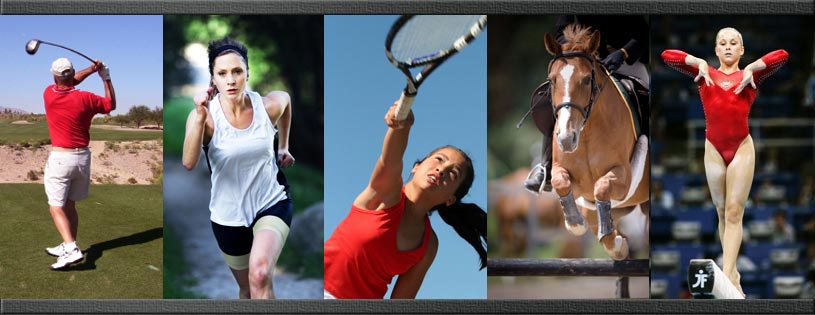Sport Psychology
My interest in sport psychology comes about because I have been a lifelong athlete. Ten years into practicing psychology, my athletic passion and my profession merged. I expanded my practice with the purchase of a fully functioning and equipped health club. With this came the beginning of my involvement in sport psychologyand performance enhancement.
I see sport psychology as the application and utilization of clinical tools with an athletic population.
I initially worked with local athletes. As my expertise grew, I expanded to working with college and regional athletes and then national and international athletes.
In 1996 I was invited to become a member of the United States Olympic Committee Sport Psychology Registry–a select group of the most competent and qualified sport psychologists in the world. It is to this cadre that the USOC refers Olympic athletes for consultation and training.
Athletes have the same emotional struggles that the rest of us have. Difficulties that athletes are experiencing often manifest in their sport performance.
My work involves looking from a psychological perspective at the athlete’s emotional life and well-being and teaching a number of performance enhancement skills. Training is an individually designed and systematic way to improve performance through the use of specific mental skills, whether professional, Olympian, collegian, high school and even junior high school competitive or casual athlete.
Sport Psychology Training is designed to:
- Resolve historical issues that may be interfering with attitude and performance. Resolving historical issues can be difficult, complicated, and is seldom discussed or addressed. These issues interfere more profoundly on sports performance than any other issue. They include depression, anxiety, phobias, self-esteem and substance abuse issues.
- Overcome performance blocks through various mental training skills such as positive thinking techniques, attentional training and techniques for improving concentration.
- Develop individualized performance goals which are challenging, measurable and realistic.
- Develop an optimal level of performance arousal and relaxation.
- Increase confidence in performance through understanding the relationship between mind and body when in demanding and high stress situations.
- Assist in the achievement of peak performance through the comprehensive utilization of the entire spectrum of mental training techniques.
For the younger athlete, eating disorders (anorexia nervosa and bulimia nervosa) can be of serious concern with deadly consequences. The pressures and focus on youngsters to excel can mask other family problems that need to be addressed for the ultimate success of the youngster.
For the professional, Olympic and seriously competitive athlete, the demands of athletic commitment and the obligations of family and relationships can produce distracting and detrimental problems. Intervention in conjunction with training can resolve these issues and not only bring about increased sports performance but also an increased sense of personal harmony, mastery and well-being.
![]()

